Lawyer for Playboy Playmate and Porn Star Tells Hush Money Trial How He Sold Their Stories About Sex With Trump
Keith Davidson, who represented Karen McDougal and Stormy Daniels, described how he texted the editor in chief of the National Enquirer that he had ‘a blockbuster Trump story.’
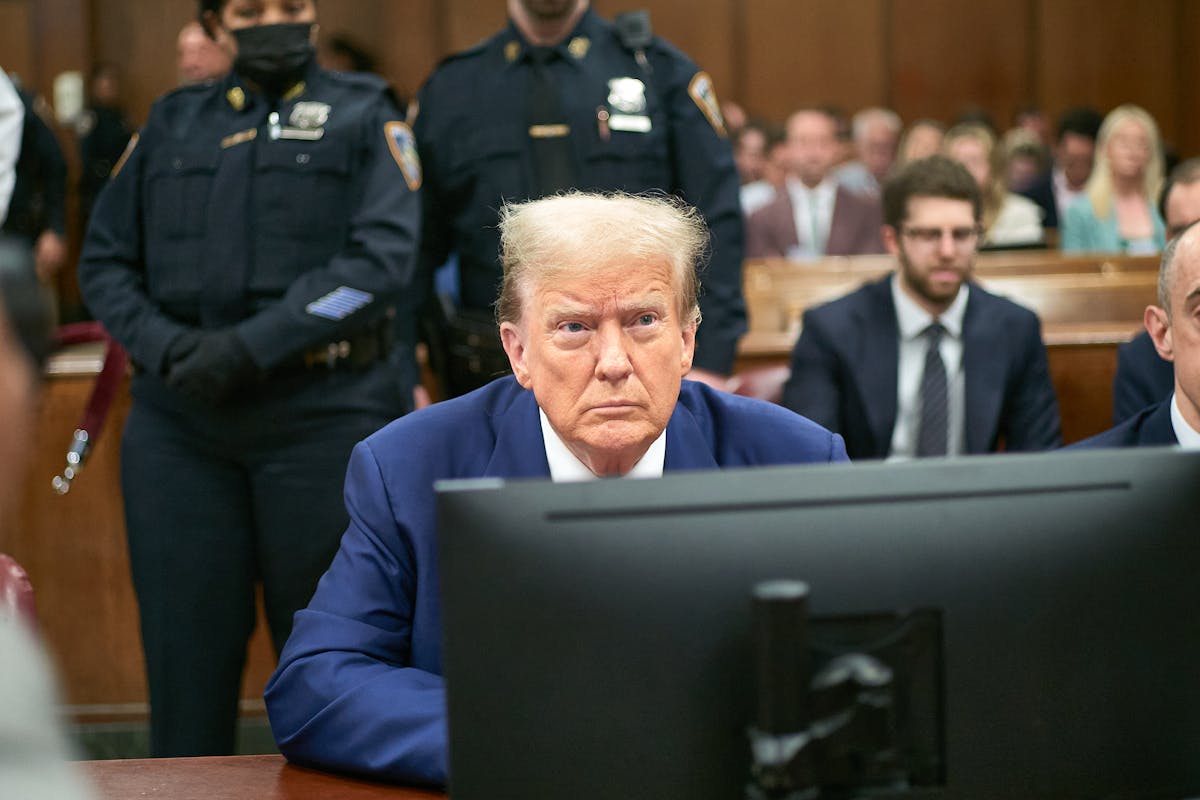
President Trump’s hush-money trial entered its second week of testimony and made significant headway, with four witnesses testifying on Tuesday, the highlight being the attorney Keith Davidson, who told the court about how he brokered payments for his two clients, Playboy Playmate Karen McDougal and porn star Stormy Daniels, who were selling their stories of sexual encounters with Mr. Trump.
Before the prosecution called the banker, Gary Farro, back to the stand, to complete the testimony he had started on Friday, the presiding trial judge, Juan Merchan, gave Mr. Trump some good and then some rather bad news. Mr. Trump would be able to attend his youngest son Barron’s prep school graduation on May 17 in Florida, he was informed, and in the same breath, the judge held him in contempt of court and fined him $9,000 for multiple violations of a gag order, as the Sun reported earlier.
Mr. Trump, who is the first former president in U.S. history to undergo a criminal trial, had told court reporters in the morning that “every single major legal scholar — Jonathan Turley, Greg Jarrett, Andy McCarthy, Dershowitz — every single scholar, Mark Levin, the great Mark Levin… said this is a disgraceful case. It’s a disgrace to the New York State and City court system.”
Mr. Trump added, “I’m going to go into the icebox now and sit for about eight hours or nine hours.” By icebox Mr. Trump was referring to the courtroom, where the heating system hadn’t been working properly during the last two weeks. However, on Tuesday, a mild spring day, the courthouse seemed to have fixed the problem.
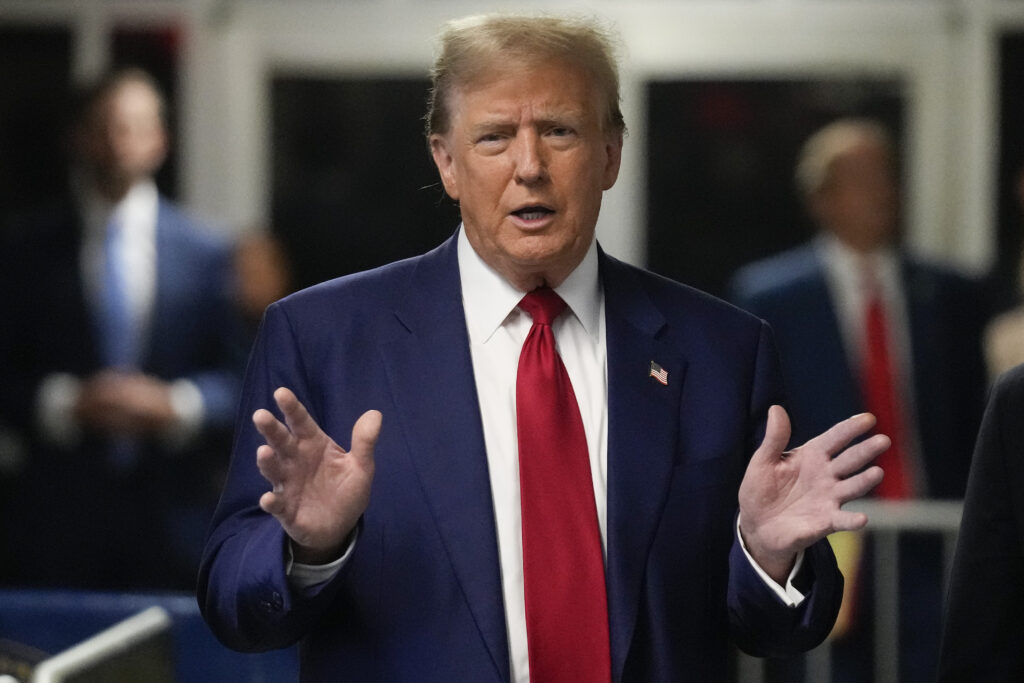
Accompanying Mr. Trump was his adult son, Eric Trump, who also frequently attended the recent civil fraud trial held at a courthouse nearby last winter. So far, Mr. Trump fils is the only family member of Mr. Trump’s who has attended the court proceedings without having to be there to testify.
The first witness of the day, Mr. Farro, worked at the First Republic bank, where on October 26, 2016, his client Michael Cohen, Mr. Trump’s former lawyer and so-called “fixer,” opened a bank account for a company he had newly created called Essential Consultants LLC. Cohen added $131,000 of his personal funds to the account, using a home equity line of credit.
The following day, bank documents showed, Cohen used the account to send a wire transfer of $130,000 to Mr. Davidson, who at the time was representing Stormy Daniels, whose real name is Stephanie Clifford, and who claims she had a one-time sexual encounter with Mr. Trump at a celebrity golf tournament in 2006. Mr. Trump denies the claim.
The Manhattan district attorney, Alvin Bragg, who brought the case against Mr. Trump, alleges that Cohen paid Ms. Clifford to keep her from publicizing the alleged affair in order to keep this information from voters during the 2016 election. Mr. Bragg further alleged that when Mr. Trump paid Cohen back, he disguised the payment as legal expenses. Combining the alleged concealment with the alleged election interference, Mr. Bragg was able to elevate these misdemeanor charges to a felony.

Now the banker, Mr. Farro, told the prosecution that had he known the account had been opened to transfer money to an adult film star, he may not have opened the account within a day, or not at all, because his bank was not used to doing “business with that industry.”
Mr. Farro also did not know the exact reason for the money transfer. According to the transfer authorization form, the wire was a “retainer” payment to Mr. Davidson. The banker testified that had he known the wire was actually going to a porn star, he might have considered that “a reputation risk and not sent the money.” Cohen sent the alleged $130,000 hush-money payment to Mr. Davidson, Ms. Clifford’s attorney, on October 27, 2016, twelve days before the presidential election.
Under cross-examination by defense attorney Todd Blanche, Mr. Farro said about Cohen that he was “a challenging client because of his desire to get things done so quickly.”
Mr. Farro also explained that his supervisors later terminated the First Republic bank’s relationship to Cohen as a client in 2017 when the details about the wire transactions to Ms. Clifford became “public.” The banker said, “They didn’t want me to have communication with the client any longer.”
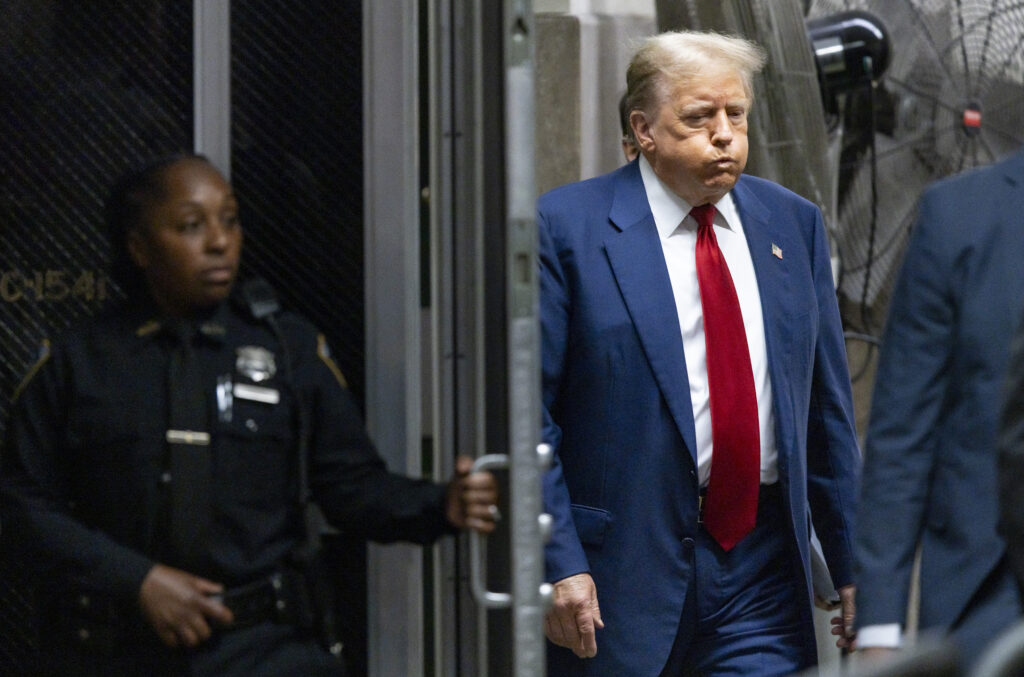
The next witness was a man, who has been the executive director of C-SPAN’s archive for the last 37 years, Robert Browning.
He verified to the jury that four video clips the jurors were about to see had all been recorded in real time. Two clips were from a Trump campaign event in North Carolina in 2016, another one was from another campaign rally in Gettysburg, Pennsylvania, also from 2016, and the last clip showed a news conference Mr. Trump gave in 2017.
The videos showed Mr. Trump denying allegations by several women (not including Ms. Clifford or Ms. McDougal) who came forward after his infamous 2005 “Access Hollywood” tape was released, making various allegations of sexual misconduct against him.
“I have no idea who these women are. I have no idea,” Mr. Trump says in one of the videos. “The stories are total fiction. They are 100% made up. They never happened. They never would happen.”
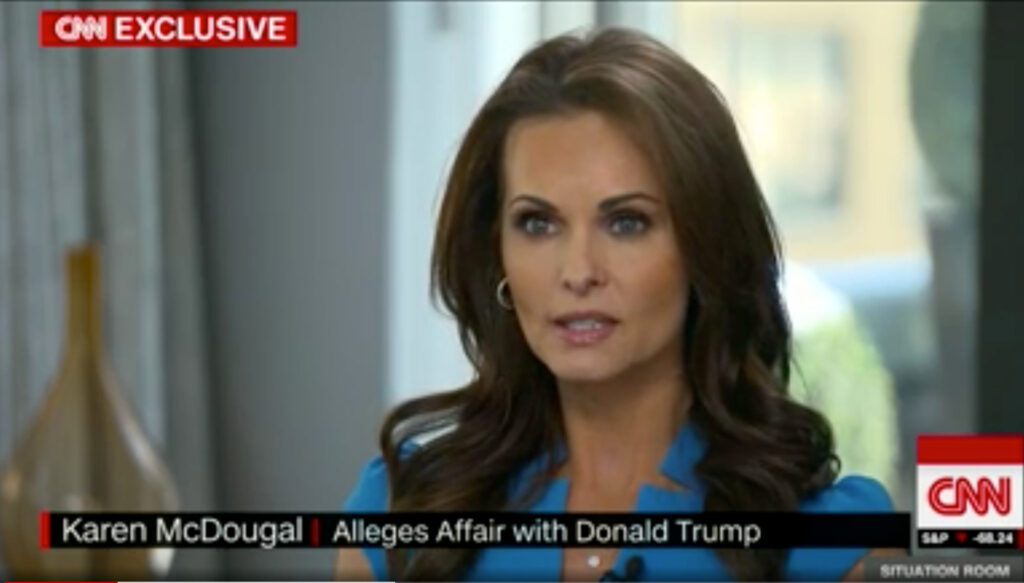
And at the 2016 Trump rally in Gettysburg, Pennsylvania, he told his audience, “They are trying to poison the mind of the American voter. Every woman lied when they came forward to hurt my campaign.”
The very last clip showed Mr. Trump praising his former lawyer, and current nemesis, Cohen, calling him a talented and good lawyer. Inside the courtroom, Mr. Trump, who had been dozing off at times, was wide awake as the videos were played and eagerly whispering with Mr. Blanche. The defense did not cross-examine the C-SPAN executive.
The next witness, Philip Thompson, works for a national court reporting company. He testified briefly about a deposition Mr. Trump gave to Roberta Kaplan, the attorney who sued him for defamation on behalf of the writer E. Jean Carroll. Mr. Trump had called Ms. Carroll “a total con job” after she accused him of raping her in a dressing room on the lingerie floor of an upscale Manhattan department store, Bergdorf Goodman, sometime in the 1990s.
Jurors were introduced to three statements, or facts, from the deposition with Ms. Kaplan. Firstly, Mr. Trump confirmed his handle on his social media platform Truth Social, a platform that was “opened by me as an alternative to Twitter,” Mr. Trump said in the first video that was shown. Secondly, Mr. Trump confirmed he married his wife Melania in 2005. And lastly, Mr. Thompson read from the part of the transcript of the deposition where Mr. Trump is asked about the “Access Hollywood” video in which he talks about grabbing women.
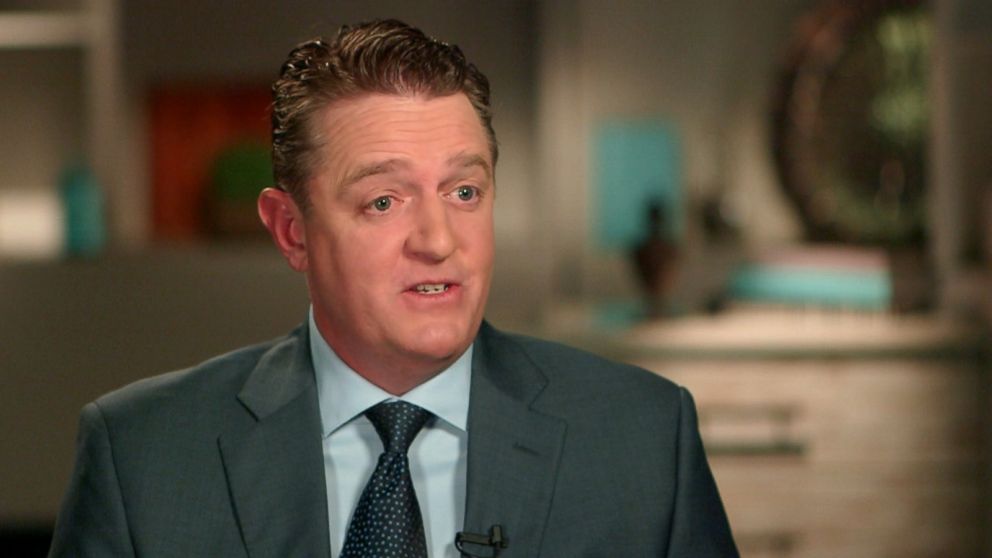
Next up was the attorney, Mr. Davidson, who worked both for Ms. McDougal, the Playboy Playmate of the Month for December 1997 and Playmate of the Year for 1998, and for the porn star, Ms. Clifford, when the alleged hush money payments to both women were arranged and paid.
The jury was shown a text message that Mr. Davidson sent to Dylan Howard, who was the editor in chief of the National Enquirer, and worked for its longtime publisher, David Pecker, who testified last week.
“I have a blockbuster Trump story,” the text message read. It was sent by Mr. Davidson to Mr. Howard in 2016.
Mr. Davidson explained in detail the retainer agreement he signed with Ms. McDougal, who was looking for help to negotiate with media outlets for the rights to her story about a romantic relationship, she claimed, she had with Mr. Trump.

“It was sort of an entree or teaser to Dylan,” Mr. Davidson explained about the message. He knew about Mr. Pecker’s close relationship to Mr. Trump.
Jurors were shown more messages. “Did he cheat on Melania?” Mr. Howard texted back. “Do you know if the affair was during his marriage to Melania?”
“I really cannot say yet. Sorry,” Mr. Davidson answered.
“OK. Keep me informed,” Mr. Howard wrote.
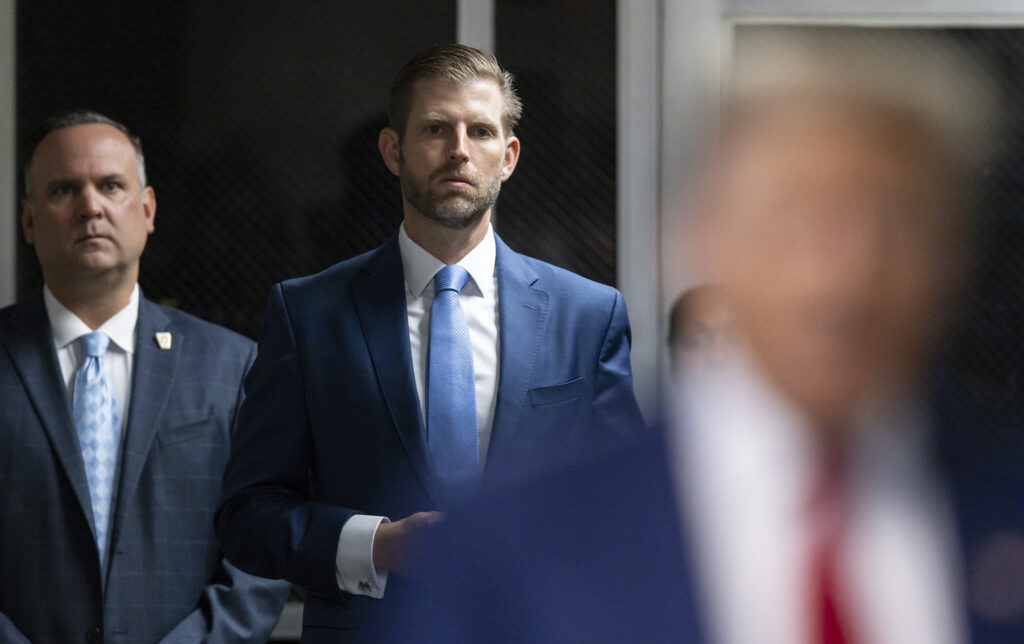
Mr. Davidson then detailed how the National Enquirer bought Ms. McDougal’s story, and how he had another offer from ABC News on the table and played the two against each other. Ms. McDougal much preferred to sell her story to the Enquirer, Mr. Davidson testified, because she did not want to actually tell it. With ABC News she would have had to tell the story, but at the Enquirer, she didn’t need to. They would buy it to bury it.
ABC News claims not to pay for interviews, but it has been known to disguise such payments as photo licensing agreements.
The Enquirer paid Ms. McDougal $150,000, and Mr. Davidson took a 45 percent cut, a stiff fee for a modest media deal. The contract was, as Mr. Pecker testified last week, drawn up to include work for Ms.Dougal like posing on magazine covers and writing regular fitness columns for publications owned by the National Enquirer’s parent company, American Media Inc. She had also wanted to write about the removal of her breast implants. None of those projects ever materialized.
Mr. Trump was not named in the contract, but Mr. Davidson acknowledged that catching and killing her story was valuable to his election campaign.
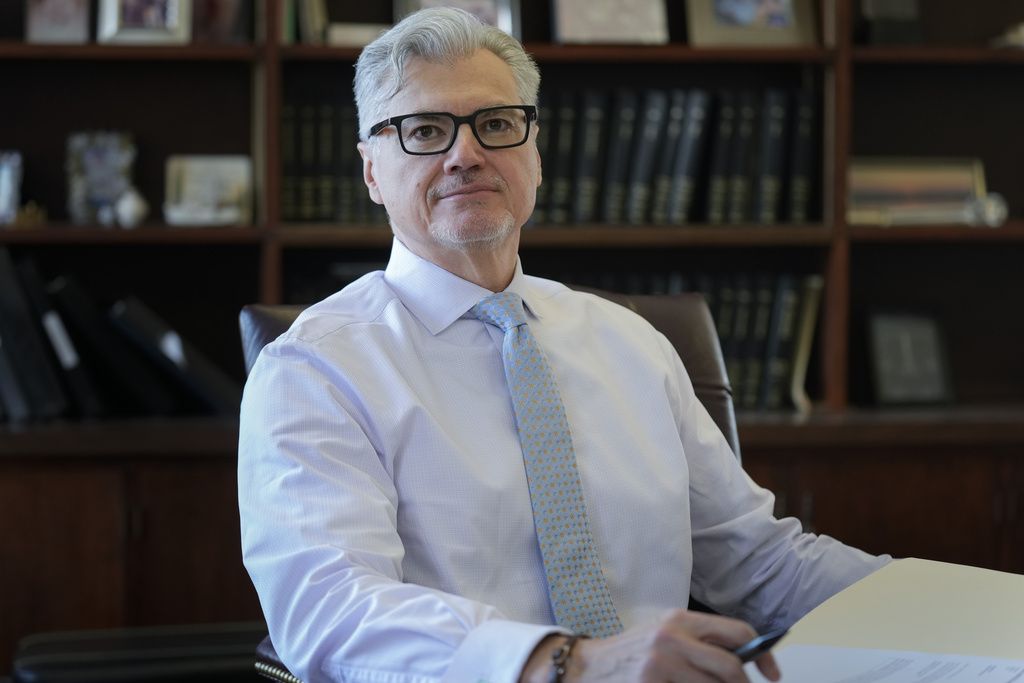
Mr. Davidson’s testimony will continue on Thursday. There is no court on Wednesday, as Judge Merchan presides on Wednesdays over Manhattan Mental Health Court, a progressive institution that seeks to provide alternatives to incarceration for defendants with a mental illness.
During Tuesday’s proceedings at the criminal court, a five-judge panel in the state’s mid-level appellate court rejected Mr. Trump’s request to pause the trial while he appeals several pretrial rulings, including Judge Merchan’s refusal to recuse himself. The defense has persistently claimed that Judge Merchan is hopelessly compromised due to the political activities of his adult daughter, Loren Merchan, a Democratic operative.

